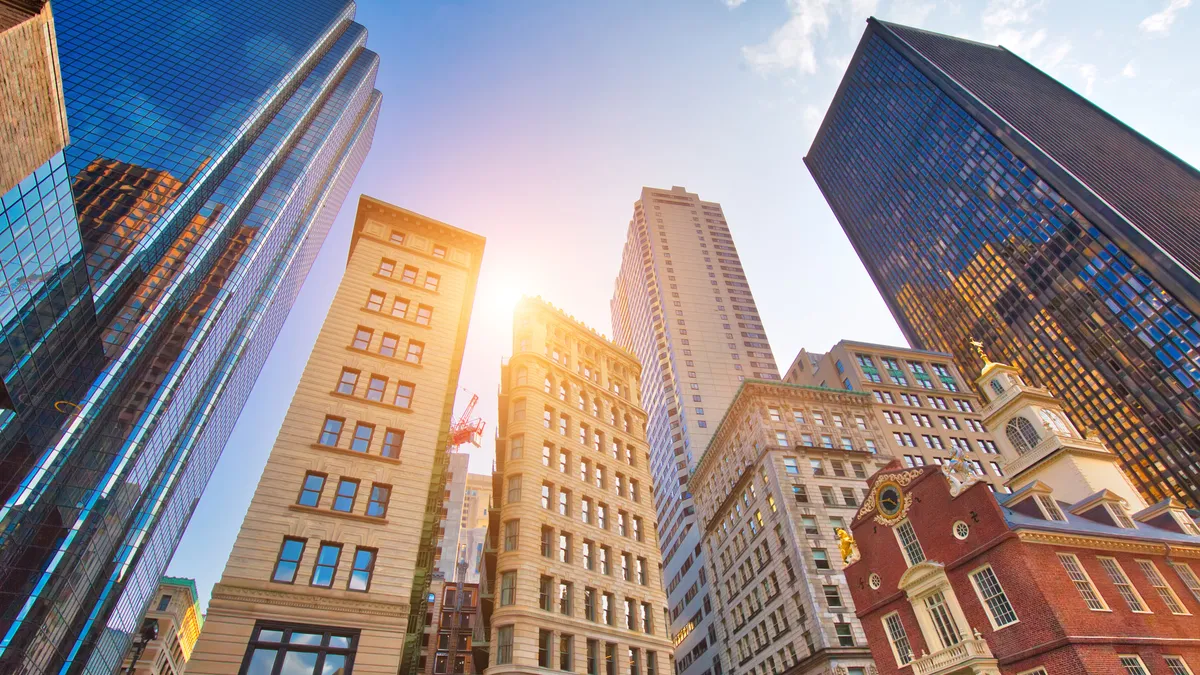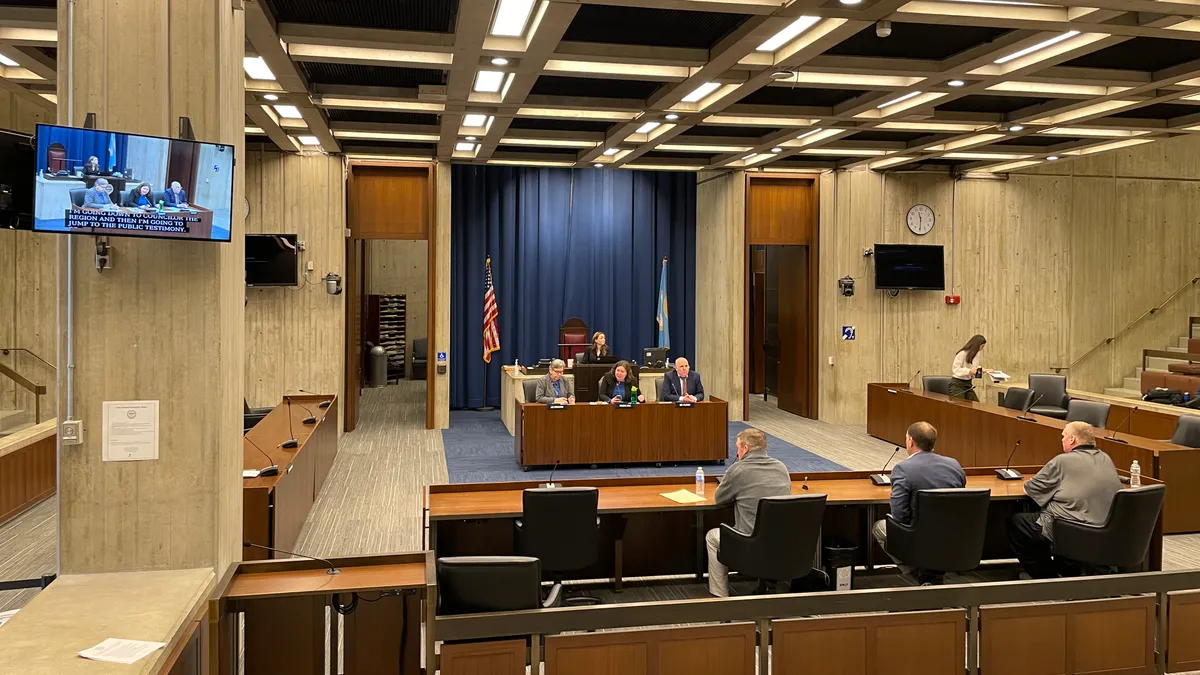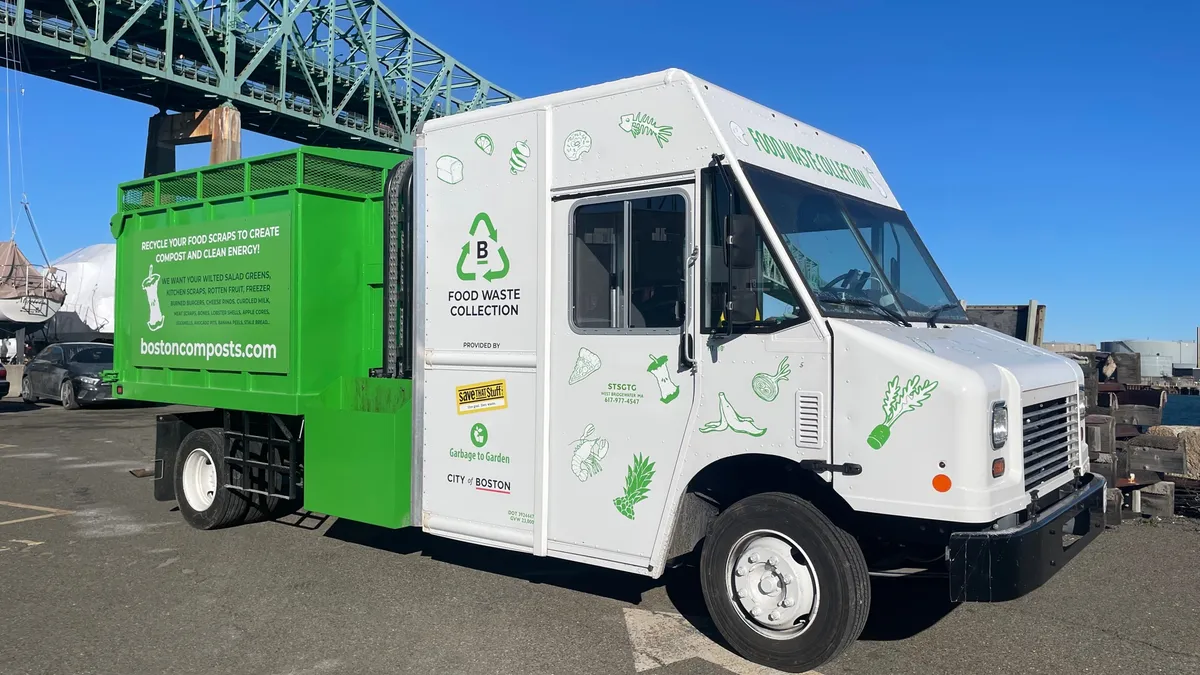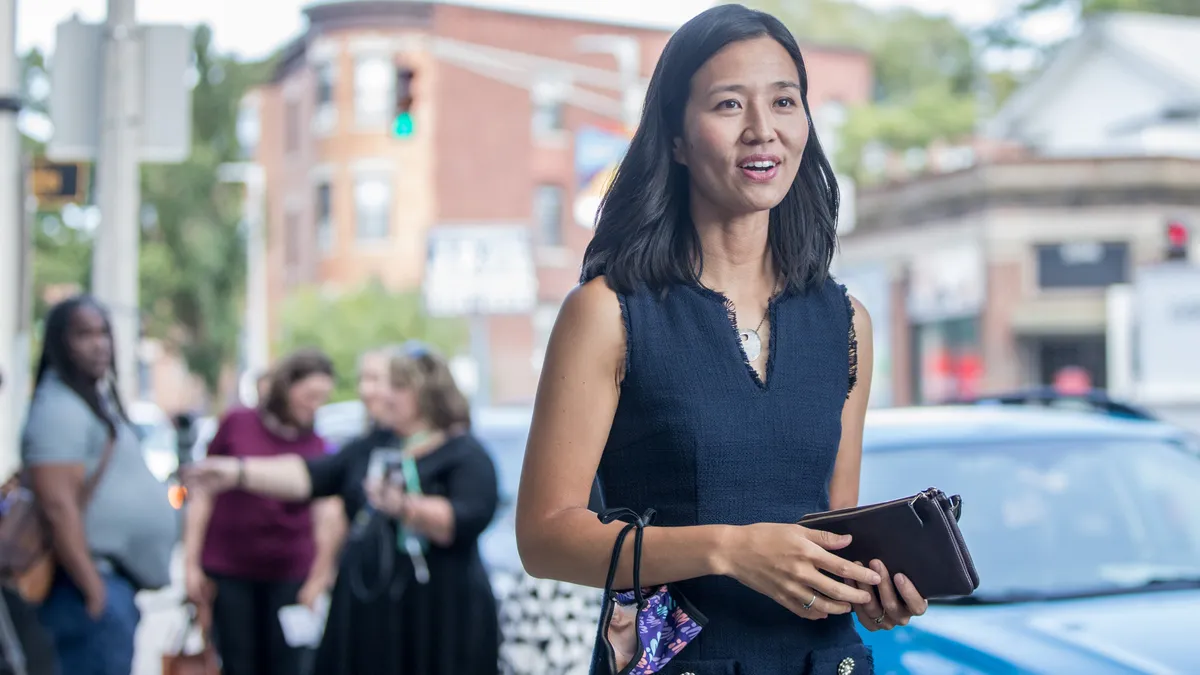Boston will expand the reach of its curbside organics collection program sooner than expected, aiming to triple the number of households served by this summer to 30,000.
“The strong interest in our pilot program gave us a clear sign that residents are eager to participate in curbside food waste collection if the resources are available. This expansion will make it easier for more residents to help our city fight the effects of climate change,” said Mayor Michelle Wu in a news release.
Boston launched its residential program last summer, through a collection contract with Save That Stuff and Garbage to Garden, and is currently serving 10,000 households. The city had already planned to expand to 20,000 accounts this summer, but is now accelerating its timeline amid high demand and an ongoing waitlist to participate.
According to the city, the program has collected more than 800 tons of food waste so far, with yard waste handled separately. Material currently goes to a local WM pre-processing site, where it is turned into a slurry for codigestion at a regional wastewater treatment plant.
The city and its collection partners are also working on options for composting the material, including the potential for a new site in the area. The Boston Public Works Department’s proposed FY24 budget notes $100,000 in funding “to continue research into finding and securing land in Boston to process food waste including the community input process and state permitting.” This funding comes from the U.S. Department of Agriculture’s Composting and Food Waste Reduction grant program, which is funded by the American Rescue Plan Act.
"With thousands of residents on the waitlist and new households signing up daily, the expansion of the curbside program comes at a perfect time," said Annika Schmidt, Garbage to Garden’s marketing director, in a statement. “We encourage anyone interested to enroll.”
Boston’s program covers buildings with six units or less, and will prioritize enrollment from residents in environmental justice communities. New participants will receive a starter kit as early as June, with the no-cost service starting in phases as early as July.















